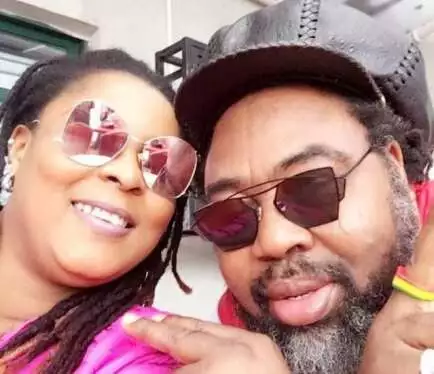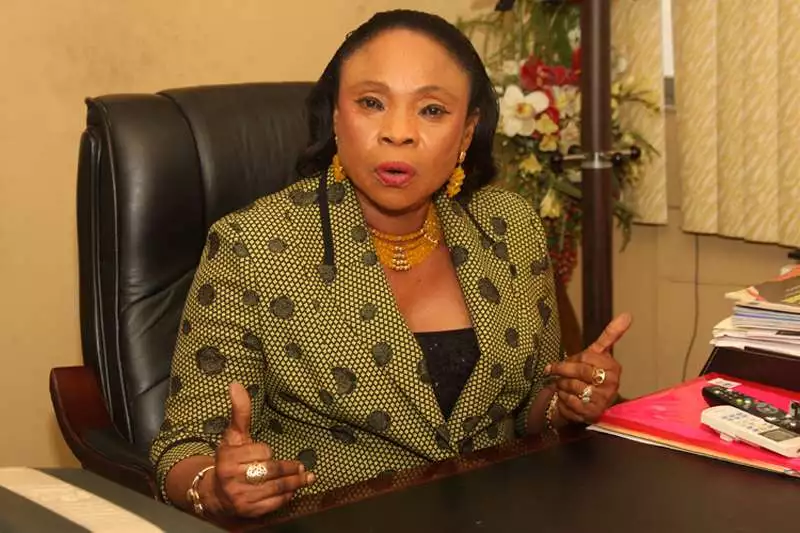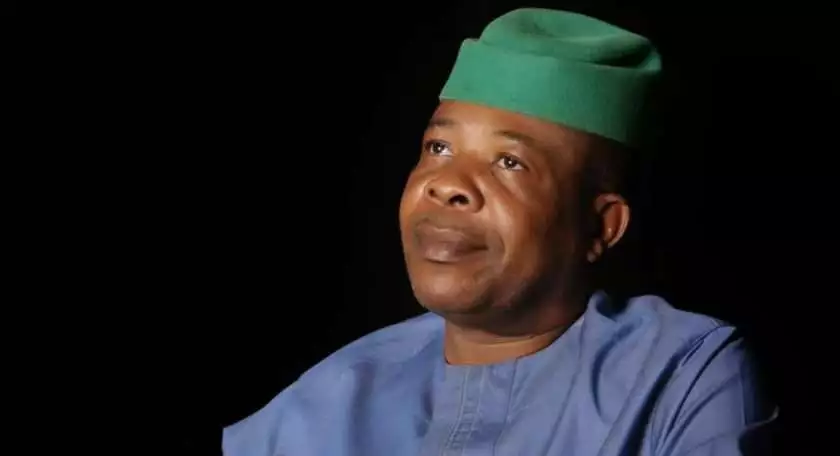By Comfort Obi
Until she died on Saturday, September 22, 2018, perhaps, not many Nigerians, outside the music industry, knew Efemena Okedi. She was the wife of late reggae music star, Ras Kimono. Popular within her circle as Efe, she also doubled as her husband’s manager. She died suddenly, barely three months after her husband, also, died suddenly on his way to the USA.
Efe was buried about a month ago. So why am I just talking about her provocative passing now? In fact, I asked myself the same question several times, just before I stared writing. And, each time, I drew blank. But within me, I know why.
It is because of the anger I have haboured against my country since her avoidable death. It is because of the anger I have haboured against the leadership of my country these past many years. It is because of the anger I habour against politicians who have ruined our lives by promising much, and doing barely little. These guys have collectively reduced our lives to nothing.
It is this anger that boiled over this last Sunday when the campaign for the 2019 general elections officially started. And, as I listened to their secular sermons which have started tumbling out of their mouths, I remembered Efe and the cruel circumstances which led to her death. I remembered others like Efe whose lives were cruelly cut short by an uncaring system. I weep at the helplessness of their families. I weep at opportunities squandered. And I weep at hope raised and dashed.

Following are the circumstances of Efe’s death as narrated by her elder sister, Mabel Okedi, who was with her on the tragic day.
According to Mabel, she and Efe had eaten what could now pass as the last super just before 9.00pm, on arrival from a party. But at about 3.00am when she woke up to use the rest room, Efe complained about some pains around her chest area.
Here are Mabel’s words as reported by the New Telegraph newspaper which I use here as a guide.
Mabel: “At about 3.00am, I woke up to go and ease myself. As I got back to the room, she called me ‘mummy’, and said that her chest was paining her. I thought it was a minor thing, so, I used Aboniki balm to massage her chest. Later, I asked her if she was getting better, and told her to lie down on her side. She said she was getting better.
“But later, all of a sudden, she held her chest, and was breathing with difficulty. I shouted, and called her son, Onome, and within five minutes, all of us, including my other sisters, rushed her to Anson Hospital.”
Nigeria is not a country where one would easily dial a number during such emergencies and get help from medical personnel. One is usually at one’s own.
Anyway, for Efe and her family, the Nigerian factor started at this hospital. The drama, the unseriousness, the irresponsibility, the callousness, were all on display here.
Mabel: “When we got to the hospital, the gate to the street was locked. So, we honked several times, and shouted that it was an emergency. But there was no response. ”
In Nigeria, we live in a big prison yard. Because of the scary security situation, most streets across the country have gates which, at times are locked as early as 10pm. When one has an emergency, and needs to rush out, it’s near impossible. Many times, the guards manning such gates either wander away, or simply refuse to open. When one angrily confronts them later, they explain they were not sure who were at the gate. You know, they could be armed robbers, kidnappers, or assassins. You shake your head and walk away. They are right.
Now, add the gated streets to our equally “gated houses” – main entrance, doors, windows, all the passages leading to the rooms and, our Kirikiri maximum prison is complete.
But, forgive me. I digressed. I was talking about Efe’s arrival at the Anson hospital where a locked gate denied her entry. From Anson, they decided to rush to another hospital, this time, County Hospital, in the Ogba area of Lagos.
Again, Mabel: “When we got there, it was the same thing. We knocked on the gate several times, while also honking, calling the attention of the doctors or nurses that we have an emergency. It took quite some time before some nurses eventually came out LEISURELY (emphasis, mine), and asked us to bring the patient in. We asked them to assist us”.
Dear Readers, I emphasised the word leisurely because in many hospitals, that is an everyday story. Many nurses, and even doctors, hardly understand what an emergency is. The state of a patient hardly bothers them. They take their time. They reluctantly attend to the patient. And imagine this: Efe’s family had to beg them to assist them bring her down from the car into the hospital. When they leisurely came out to answer them, they apparently walked back into the hospital, without appreciating the state of the patient. Perhaps, there was no wheel chair in the hospital, which may not be entirely surprising.
Many of our hospitals have no wheel chairs. They have no ambulance. No incubator. And I am not talking about oxygen yet. There are no mosquitoe nets, treated or untreated, A number of those who have are better off without them. They are tattered and dusty. Mosquitoes feed on patients. When one is admitted for Malaria, one’s condition worsens. In one of the hospitals in Owerri where a cousin of mine was admitted, I watched in shock as nurses handled patients without wearing gloves. Reason: The patients came in bringing no gloves with them. The nurses were not worried about their own safety. How much are disposable gloves? Why not buy and bill tbe patients? Some have no power generating set. When the public power supply goes off, especially in the night, such hospitals are enveloped in darkness. Patients stay in hospitals and develop bed sores. And finally, die of infection there in the hospitals.
So you ask, where is the ministry of health? What are its officials doing? Whatever happened to supervision? Why are hospitals with no wheel chair, no ambulance, and no mosquitoe nets allowed to operate? I thought those were basic things. But back to Efe.
After the nurses took their time before assisting them, they casually informed them there was no doctor in the hospital. Repeat: No doctor in the hospital. So, where were the doctors? They left the hospital for nurses who didn’t know they would assist a patient in an emergency down from the car into the hospital.
In desperation, Mabel’s daughter phoned Anson hospital’s doctor, remember, their first port of call. Apparently, they are familiar with the doctor and the hospital. She frantically told the doctor of Efe’s situation, emphasising that they had been there before, but that the gate was locked against them. The doctor asked them to go back to the hospital. His kind advice: knock harder, somebody will answer you.
Mabel: “So, we went back to Anson Hospital, and, after sometime, the security man came and opened the gate for us. We told them we have an emergency, only for them to tell us that there was no doctor around.”
Dear readers, please, understand that as this family desperately ran from one hospital to the other, Efe was reeling in pains, and gradually dying. If the Anson doctor knew he was not in the hospital, why ask them to go back there? Why didn’t he rush down to the hospital, or at least, given his nurses instructions on what to do?
Why does the ministry of health allow one-doctor hospitals to operate? But Mabel and family were not discouraged. They did not give up. Their mother and sister was in serious pains. They did not give up hope.
From the fruitless second missionary journey to Aston hospital, they proceeded to yet another hospital. This time, the Blue Cross Hospital.
Again. Mabel: “We then rushed to the Blue Cross Hospital where after eight minutes, the doctor came out, checked her, and told us that her pulse was dropping, and that what they needed to treat her was not available there. He then told us to go to the Lagos State University Teaching Hospital, LASUTH. So, we again rushed down to LASUTH, where eventually, the doctor came out to see her, and said she was dead on arrival. He said he suspected it was cardiac arrest.” And this conclusion, without any autopsy.
And so, Efe died. LASUTH served only as a mortuary for her. And why not? Life-saving hours had been lost while the family desperately ran from one hospital to the other.
Which country treats its citizen this callously?
Since Mabel’s story, there has been no outrage. Not from the Lagos State Hospitals Management Board, or the Ministry of Health. Not even from the industry where she and her husband belonged. It has only been lamentations. “Oh, if it is painful she died three months after her husband died. Oh, what a wicked world.”
I disagree. The world is not wicked. It is a beautiful gift from God to us. We made it wicked. And the family? They must have resigned itself to fate. You know, it’s God’s will. It’s destiny. So what can we do? Again, I disagree. It was neither destiny, nor God’s will.
The family can do plenty.
Unless Mabel is not telling the truth, the family should petition the Medical and Dental Board, and then sue all the hospitals, except LASUTH, for everything they have got.
In more civilized climes, a board of inquiry would have been set up since Mabel’s story. Not here. Nobody cares. We have all developed well-fortified shock-absorbers. So nothing shocks us any more.
For the records, Efe’s case is not an isolated one. Everyday, Nigerians die because of some irresponsible attitude of some medical personnel and an uncaring system. Many hospitals are worse than sick bays. While a number of their nurses are not trained, the doctors are too busy and/or over worked. A number of hospitals operate from two or three bedroom flats. Their environment is dirty and smelly. And nobody cares. They have no doctors. And the authorities ,allegedly, after a handshake, turn blind eyes and deaf ears.
Many of us were still quite young when a coup d’etat ushered in the late Major General Murtala Mohammed into office. One of the reasons for the coup was the state of our hospitals. Until he was killed in a bloody coup, nothing was done in that area. Since then, we have had other coups, and it is the same story. Once in office, it is business as usual.
Civilian regimes have fared even worse. It is the same secular sermon. They promise well equipped hospitals. Not true. Isn’t it a shame that the Federal government does not have the will to establish even one hospital which one can truly call EXCELLENT? We just mouth it. It is not that we don’t have the manpower, or the capacity. It is just that it is not our priority. We have brilliant men and women in the health sector. But there is nothing for them to work with. Those of them, who left the country in frustration to work elsewhere, are some of the best in the world. From nurses to doctors, they are some of the best in the world.
The other time when a stranger brought Ebola here, Nigeria had no laboratory to confirm what it was that entered our shores.
A small, less rich African country came to our rescue. Everyday, our leaders talk about good healthcare system. They are just talking. They budget large sums of money for it. We see nothing. They claim they have refurbished hospitals. We see nothing new. Not even our Teaching Hospitals are any better than the others. They are starved of funds. And so, can’t do much. Even at the National Hospital, Abuja, a baby of former First Lady, Mariam Abacha, it is the same story. It can hardly boast of adequate modern equipment.
The other day, it was our First Lady, Aisha Buhari, who, courageously, exposed the rot at the state house clinic, Aso Rock. There were not even consumables, she lamented.
Bayelsa is the only state one can confirm that, yes, there is ,at least, one good hospital, with all kinds of modern equipments, and it is efficiently ran too. The other day, former President Olusegun Obasanjo confirmed he went to Bayelsa for his annual physical instead of going to London. And, he didn’t spend even one third of what he would have spent if he had gone to London. He was excited that it was the same equipment, and the same procedure. No difference. Other states should replicate Bayelsa.
Now that all of them are out again asking for our votes, promising us paradise on earth, we should be bold enough to ask them questions. How can we avoid more Efes? How come our hospitals are the way they are? How come mortuary has become one of the most lucrative businesses we have? Many hospitals are making fortunes from it. Individuals are investing in the dead, instead of in the living.
While I lament Efe’s fate and ask questions, let me end with this quote, allegedly, from Russia’s President, Vladimir Putin, sent to me by a friend of mine. It goes thus:
” – When an African becomes rich, his bank accounts are in Switzerland.
– He travels to France for medical check-up.
– He invests in Germany.
– He buys from Dubai.
-He consumes Chinese.
– He prays in Rome or Mecca.
– His children study in Europe.
– He travels to Canada, USA, Europe for tourism.
– If he dies, he will be buried in his native country of Africa.
– Africa is just a cemetery.
How could a cemetery be developed?”
Please, in place of Africa, read Nigeria.
A big brother who cannot take care of his siblings because of wrong priorities is big for nothing! It’s a shame!!
*Obi is the Editor-in-Chief/CEO of The Source (Magazine), https://thesourceng.com. Email: [email protected], [email protected].





